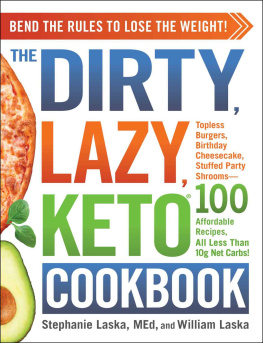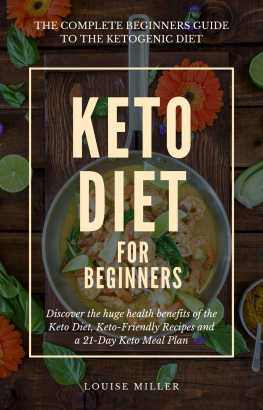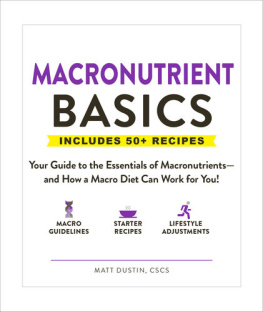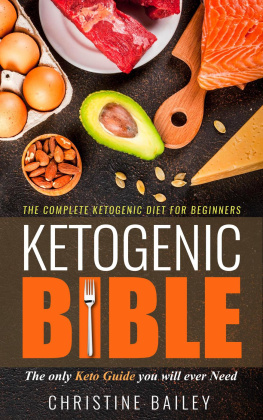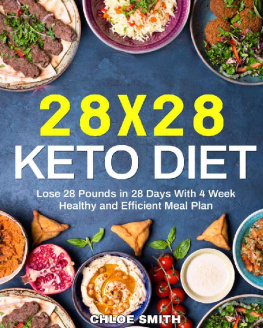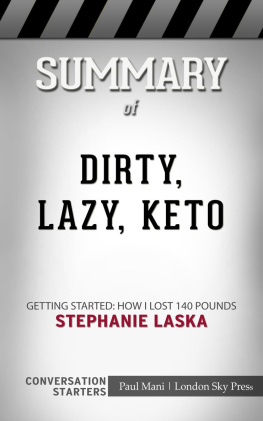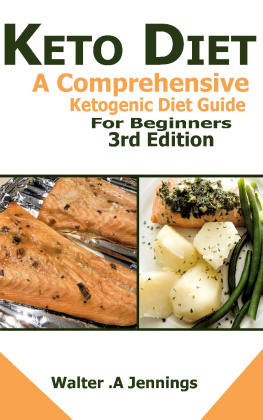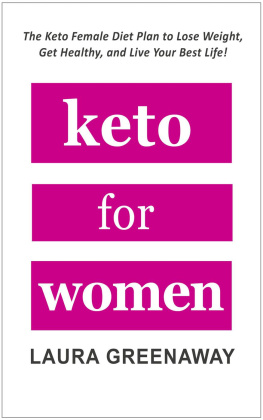The author and publisher have provided this e-book to you for your personal use only. You may not make this e-book publicly available in any way. Copyright infringement is against the law. If you believe the copy of this e-book you are reading infringes on the authors copyright, please notify the publisher at: us.macmillanusa.com/piracy.
Throughout the history of modern medicine, suspicion has been sporadically raised that perhaps obesity is more complex than we have ever understood. This was specifically noted by the editors in a 1924 issue of the Journal of the American Medical Association. Why, you might ask, did it take so long? While there have been glimmers of the complexity of this recognition for quite some time, medical science has only in the last couple of decades begun to accumulate a critical mass of evidence to make this more definitively convincing. Not only has our new and rapidly growing understanding confirmed that obesity is a disease, but that it is, in factmuch like diabetes, heart disease, and other illnessesa chronic disease that requires aggressive, life-long treatment. One of the take-home messages here: OBESITY is not a dirty word; it is a clinical condition, and its treatment should not be considered optional, but essential. Lets call it what it is and attack it aggressively.
What does this treatment look like? It may be a surprise to many that fifty-eight distinct causes of obesity have now been identified. This being the case, it should be no surprise, then, that there is no one-size-fits-all treatment. In fact, in my experience, one size often does not even fit one permanently. It is frequently necessary to tweak or even radically change treatment strategies throughout the journey. If applied judiciously, current obesity treatment options include, and sometimes will require, the use of prescription medications as well as bariatric surgical interventions. As a brief aside, you should be aware that medications and surgery are NOT easy ways out. All the same, long-term treatments must be employed, or weight regain is quite likely; by current data, about 85 percent likely in two years or less. However, it should ALWAYS and forevermore include appropriate dietary and lifestyle modifications. While, for a particular individual, this may or may not turn you into the healthiest YOU that you can be, one thing is certain: without it, you will not achieve improved health. Dietary and lifestyle changes MUST be the foundation of any successful treatment, though how these are implemented often varies from person to person.
You may also be interested to know that there are currently no over-the-counter weight-loss supplements that have been shown any more effective than placebos in randomized controlled trials. Please do not waste your money!
If diet is a critical link in the chain of obesity treatment, which diet should you use? As you might expect me to say, this varies. Food is medicine. I didnt make this up. Hippocrates, the Father of Medicine, in the early fourth century BC is said to have admonished patients to Let food be thy medicine. To a fair extent, the chemistry of different foods will affect different individuals in various ways and help control their obesity to varying extents.
As this is a foreword to Stephanie Laskas DIRTY, LAZY, KETO, I feel it appropriate to put a non-shameless plug in for the ketogenic-type diet. While this diet strategy has reached fad status in our day and is plastered all over the internet and social media, it has been used medicinally for quite some time. In the United States and beyond, as far back as the 1920s, it began to be used relatively successfully in the treatment of childhood epilepsy. We also have reason to believe that Hippocrates himself treated some conditions with dietary restrictions that would have ostensibly been ketogenic. Unfortunately, despite the term becoming well-known, what has not become nearly as well understood is what it actually is and why it can be helpful. In many of my patients, keto has been confused with the Atkins Diet. Other than both diet types striving for very low carbohydrate intake, they are quite different.
The Atkins Diet, in addition to being a very low-carb regimen, strives for high-protein and moderate-fat intake. Keto is the reverse: moderate protein and high fat. You read that correctlyhigh fat! Obviously, leaning more toward the healthier (unsaturated) fats is preferable, but saturated fats are generally not off-limits. Why is this potentially beneficial for weight loss? Without getting too scientifical (to use Stephanies term), much of our production of fat is induced by sugar intake. In short, glucose (sugar breaks down into glucose) stimulates insulin production in the pancreas. Insulin signals the fat cells to make new fat and prevents the breakdown of fat to be used for energy. So more sugar intake = more fat-making and less fat-burning. So why only moderate protein intake? Protein is generally good, however if we take in too much, our cells can convert amino acids (the building blocks of proteins) into sugar. In addition, high-protein intake over time can, in some situations, overtax the kidneys. For keto, the bottom line is this: if we effectively starve our cells of sugar, they will have to begin using more fat as a source of fuel rather than storing it. The term ketogenic simply comes from the fact that a by-product of our cells utilizing fat is the production of ketones. More and more we are discovering why some are calling ketones brain food, but thats for another discussion.
I have seen many individuals make good and effective use of a ketogenic diet, though of course it has not been equally effective for all. I think there are several reasons for this, some of which we just do not yet know; remember, the science undergirding our modern understanding of obesity remains in its relative infancy. However, some evidence and experiences help inform us as to the characteristics of the keto diets degrees of both success and failure. Perhaps one of the most obvious reasons for failure is ones inability to adhere to the dietary restrictions. But why? Please do not beat yourself up about not having enough willpower. Obesity is not a willpower disease. That is not to say willpower is not important, but, truthfully, no one has enough willpower to overcome this disease. An analogy I like is to compare willpower to the solid rocket boosters on the space shuttle. The boosters fuel source is essential in what NASA calls primary propulsion. In other words, the shuttle will not achieve liftoff and get in the air without it; however, it is completely insufficient at the task of settling the craft into orbit; this requires things like thrusters and gravity. The point being, while obesity is NOT a willpower problem, this does not mean that willpower is not helpful and even necessary, especially in the short term and perhaps in recurrent bursts. Over the long term we find we do not need inexhaustible willpower; rather we need hormone power: we need to change obesity from the inside out.


